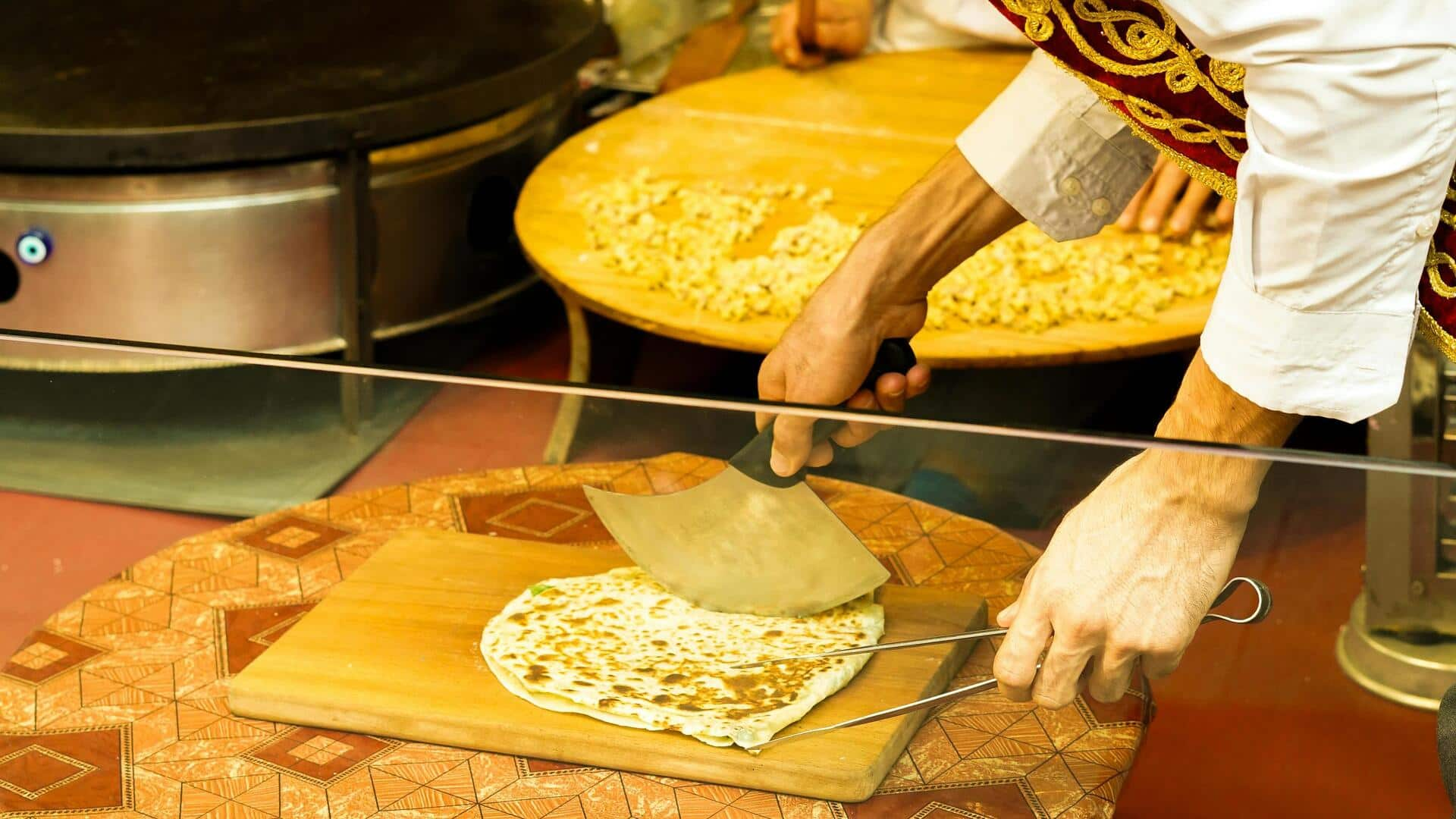
Why Persian sangak is becoming the world's new favorite bread
What's the story
Sangak, a traditional Persian bread, is making waves in the global culinary scene. Known for its unique texture and flavor, this flatbread has been a staple in Iranian households for centuries. Now, chefs and food enthusiasts around the world are discovering its versatility and potential in various cuisines. This article delves into the rising popularity of sangak outside Iran, highlighting its distinctive characteristics and how it is being incorporated into modern dishes.
Traditional technique
Unique baking method
The baking of sangak is a labor-intensive process, traditionally done on a bed of small pebbles in a stone oven. This method gives the bread its signature texture, with a crispy crust and soft interior. The pebbles also help distribute heat evenly, making each loaf unique. While this traditional method is hard to replicate outside Iran, some chefs are experimenting with similar techniques using modern equipment.
Health aspects
Nutritional benefits
Sangak is made from whole wheat flour, making it a healthier option than other types of bread. It is high in fiber and low in fat, making it a great option for health-conscious people. The use of whole grains also means it has more vitamins and minerals than refined flour-based breads. These nutritional benefits are making sangak popular among those looking for healthier dietary options.
Creative applications
Versatile culinary uses
Chefs around the world are experimenting with sangak by pairing it with different ingredients and cuisines. Its robust flavor makes it a great companion to both traditional Persian dishes and contemporary recipes. From serving as a base for gourmet sandwiches to pairing with exotic dips or spreads, sangak's versatility is being explored in various culinary contexts.
Community support
Economic impact on local communities
The rising demand for sangak abroad is also helping local Iranian bakeries and communities. As more people learn about this traditional bread, it opens up new avenues for small-scale producers to expand their reach beyond regional markets. This economic impact supports local artisans while promoting cultural exchange through food.